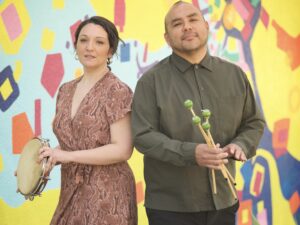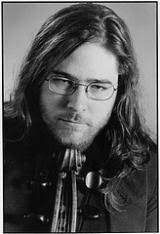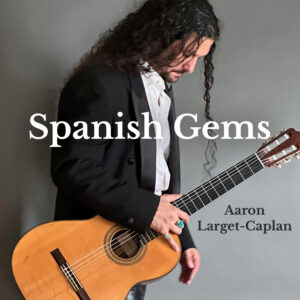
The moment when you knew you wanted to be a musician:
When I first started taking voice lessons, it was the only thing I wanted to do. I knew I wanted to sing forever.
An important skill for a career in music that does not have anything to do with an instrument or making music:
Writing and thinking. These two skills are so important to learn. I have always had a really rich journaling practice, and having the skill of reflection through writing has gotten me through some difficult times in my life and helped me expand ideas of who I am in the world, in music, and in the greater arts landscape.
I certainly helps with grant writing and appeals for fundraising, but beyond that, it’s so important to come up with your own language for your art – what exactly it is that you do, why you do it, and what difference it makes in the world.
The ability to ask questions and reflect on successes and failures allows you to hone your craft in a different way. I wish it didn’t take me 20 years to learn this, but now that I have these skills (and still improving), I’m a much better executive and artist.
Two ways you stay motivated:
- Stay involved with or start projects that are meaningful to me
- Have hobbies that are not related to my professional career.
Latest Project:

My project, Bahué, has launched the second annual Latinx Composer Miniature Challenge (LCMC 2.0), which we envisioned as a sister project to the Castle of our Skins’ Black Composer Miniature Challenge. The Bahué #LCMC 2.0 asks composers who identify as Latin American or part of the Latin Diaspora to compose pieces for me and percussionist Ariel Campos that must be 30 seconds or so. We love for pieces to be inspired by themes of Latinidad, but it’s not required!
Pieces are due February 18, 2023 and early submissions are welcome and encouraged! We will record the works in June 2024 and broadcast the performances on social media and YouTube starting September 2024 (Hispanic Heritage Month). There is no cost to enter and the composers of all chosen works will be compensated.
What inspired it:
I felt alone when I first started searching for representation in concert repertoire and it felt like my interest in connecting to my culture through music was seen as a novelty because it was outside of the traditional repertoire. So this was always an interest and in my mind, but with Bahué and with Ariel, I figured out how to blend this interest with my passion for working with composers and with new music. We all need a space where we are not a novelty. Where we can celebrate new voices in our culture as well as the musical heritage that shapes us.
Who’s on it:
My duo partner, percussionist Ariel Campos, and any composers that want to apply!
How do you discover new music?
Through chorale in my undergrad, actually! I also became friends with a composer who asked me to sing his music more. Soo after, more composers started asking me to sing their music, and beyond that, I started looking for more composers on my own, and the rest is history!
I still do that to this day. I go through periods where I’m Google Searching through websites and YouTube. Sometimes I’m going through lists to see if composers have specific instrumentation, sometimes I’m just listening to vocal works.
One living and one dead musician that deserves more attention:
I don’t know that I can answer this question. I’m not the kind that fans out on one person and there are so many amazing musicians in the world.
Where can we find you online?
Everywhere, but you can use https://linktr.ee/dirtypaloma to follow me on social media, sign up for my quarterly newsletter, and see what I have going on.
Upcoming Event you’d like to share?
Guerilla Opera has an artist networking event! It’s virtual and free, so anyone and everyone who has something to share is welcome to join us! And, of course, if you’re a composer of the Latin diaspora I hope you’ll submit to the Latinx Composer Miniature Challenge (LCMC 2.0).
New Year, New Connections: Virtual Happy Hour for Artists!
Wednesday, January 24, 2024, 7:00 PM ET
More Info: https://guerillaopera.org/eventcal/2023/12/29/new-year-new-connections-virtual-happy-hour-for-artists
Sign Up: https://us02web.zoom.us/meeting/register/tZMldeCrqTovHdd9H_JUEmMXSzaTkK8zWClv

photo by Tyler Hubby

photo by Tyler Hubby




























